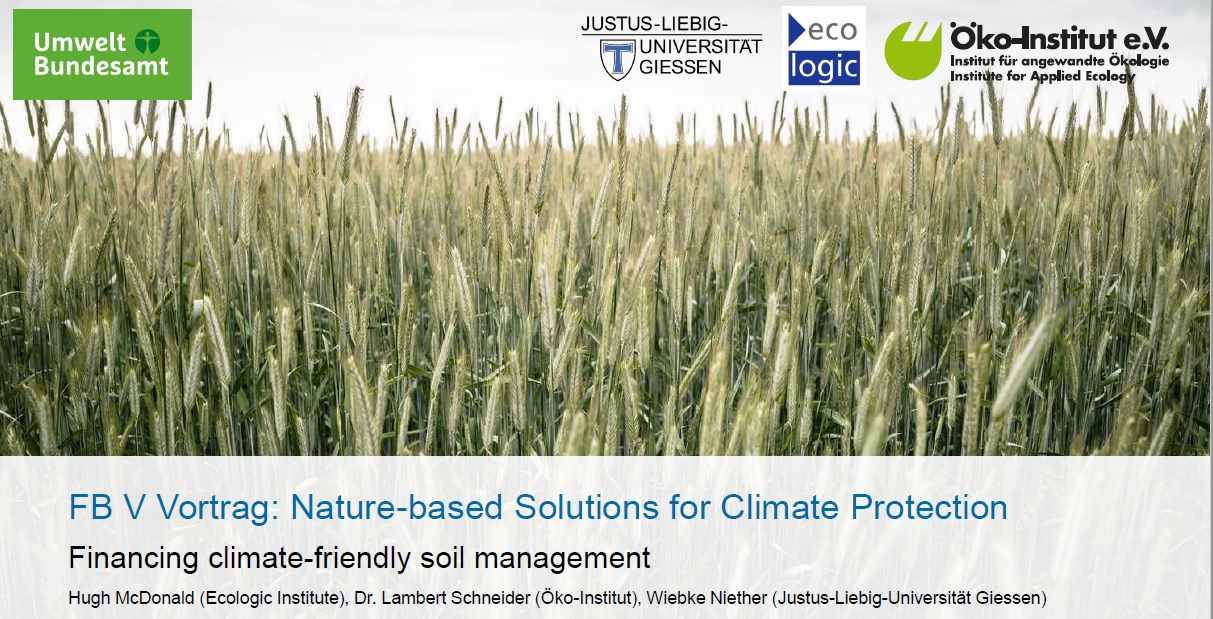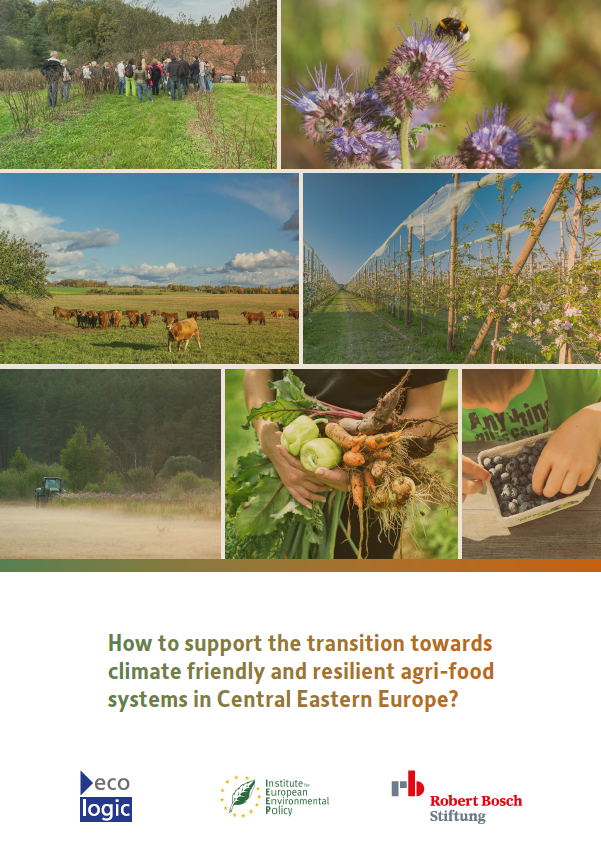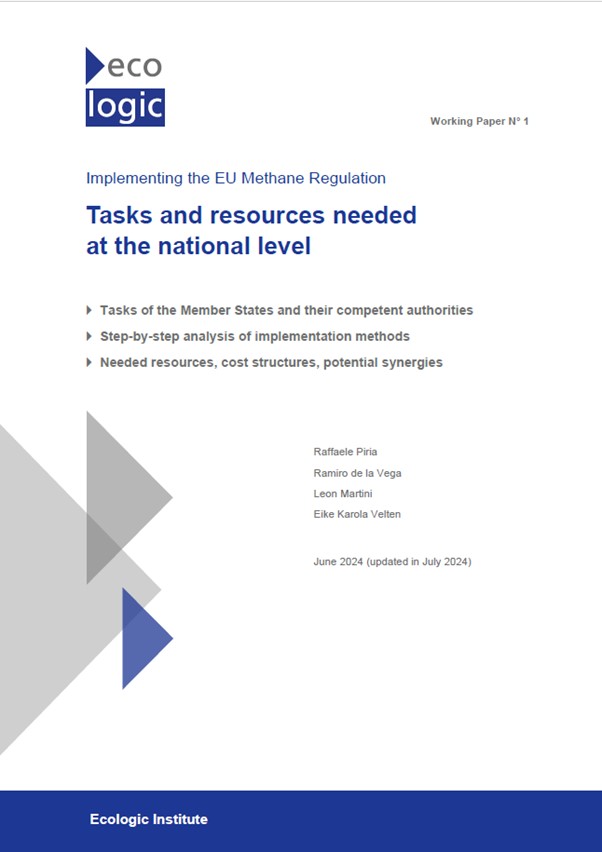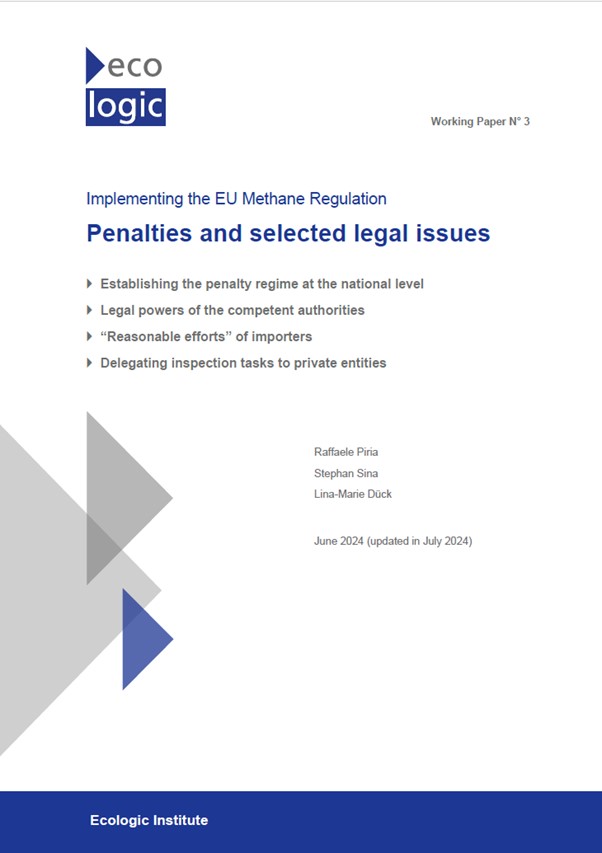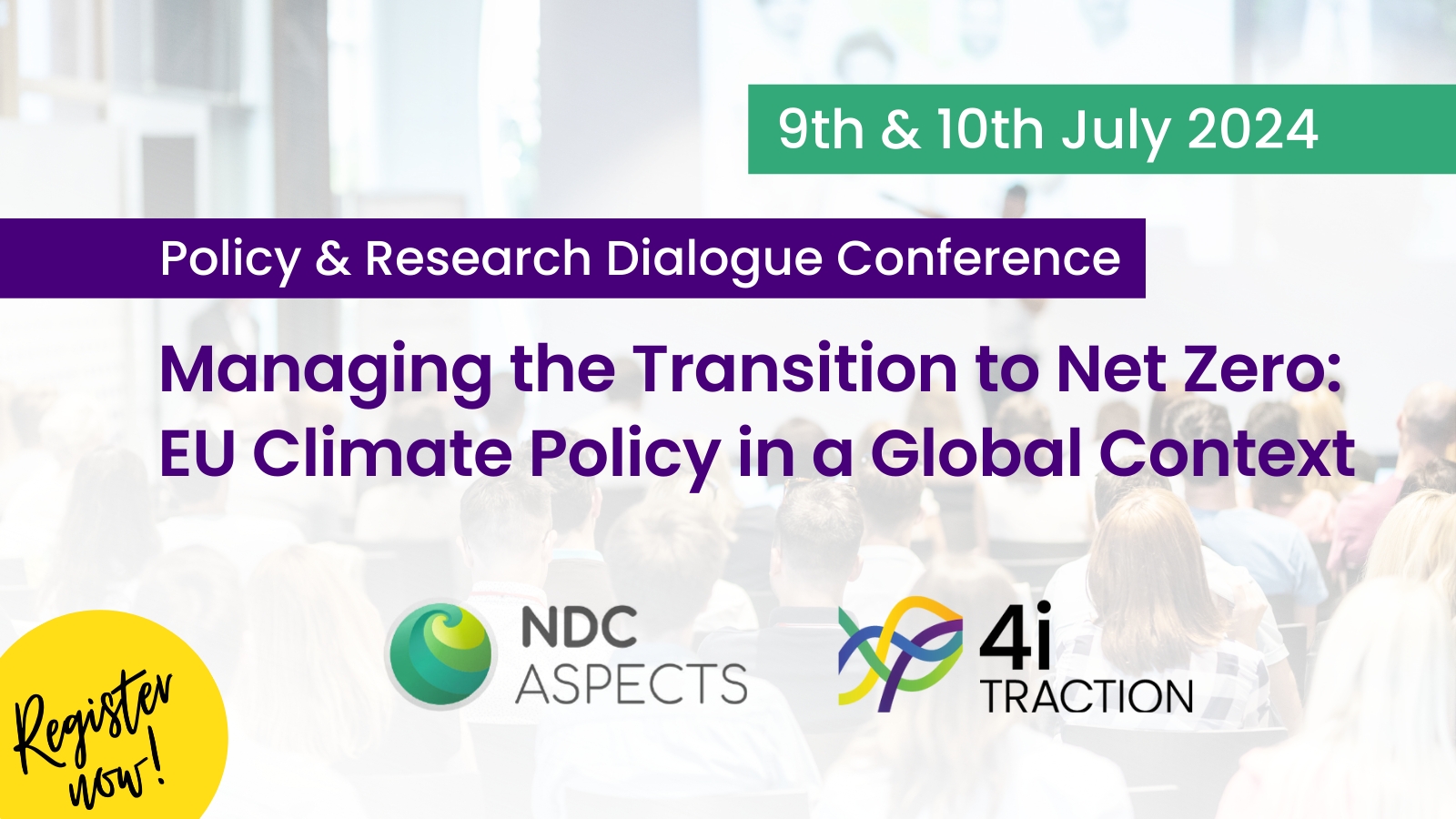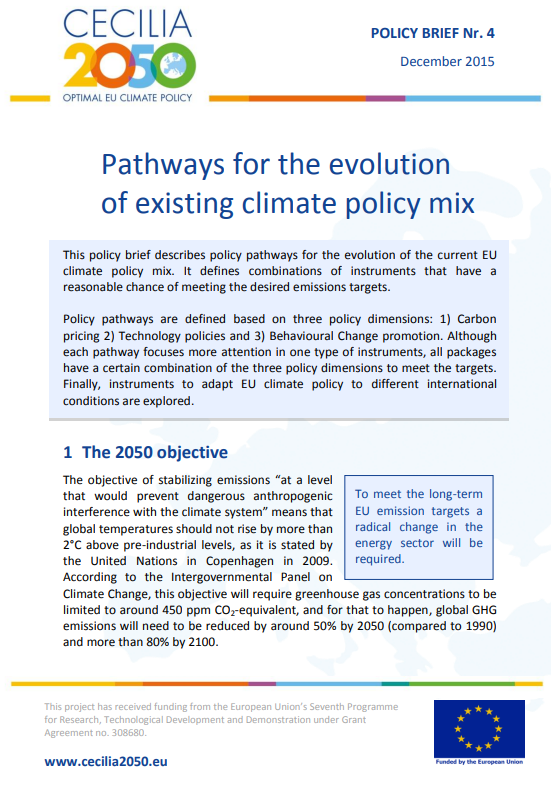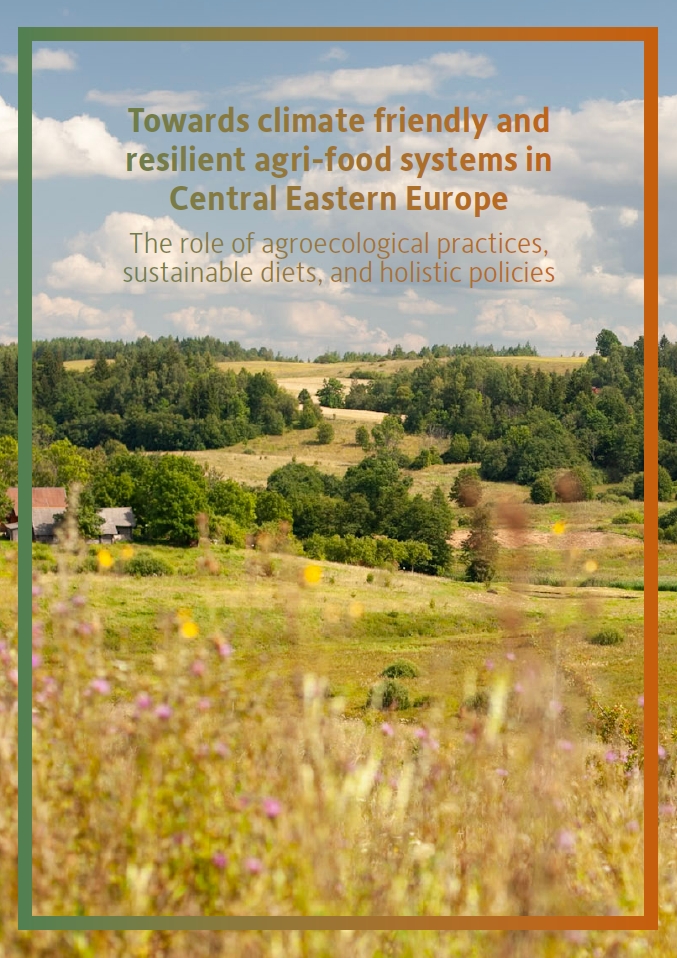Presentation:Speech
Publication:Article
Presentation:Speech
Publication:Policy Brief
Publication:Report
Tasks and Resources Needed at the National Level
Implementing the EU Methane Regulation Working Paper N° 1
Year
Read morePublication:Report
Governance at the National Level: Responsible ministries and competent authorities
Implementing the EU Methane Regulation Working Paper N° 2
Year
Read morePublication:Report
Penalties and Selected Legal Issues
Implementing the EU Methane Regulation Working Paper N° 3
Year
Read moreEvent:Conference
Managing the Transition to Net Zero: EU climate policy in a global context
4i-TRACTION x NDC Aspects Joint Conference
-
Brussels,
Belgium
Presentation:Panel discussion
News
Implementing the EU Methane Regulation
Series of working papers on the implementation of the EU-at the national level MER published
Read more
Publication:Policy Brief
Pathways for the Evolution of the Existing Climate Policy Mix
CECILIA2050 Policy Brief No 4
Year
Read moreNews
Launch of the New BiodivRestore Knowledge Hub
A Collaborative Network for Nature Restoration
-
Read morePublication:Report
Towards Climate-friendly and Resilient Agri-food Systems in Central Eastern Europe
The role of agroecological practices, sustainable diets, and holistic policies
Year
Read moreProject
Market Information Talks for the Organic Sector 2024
Organic value chains for cereals, niche crops, meat and community catering
-
Read more